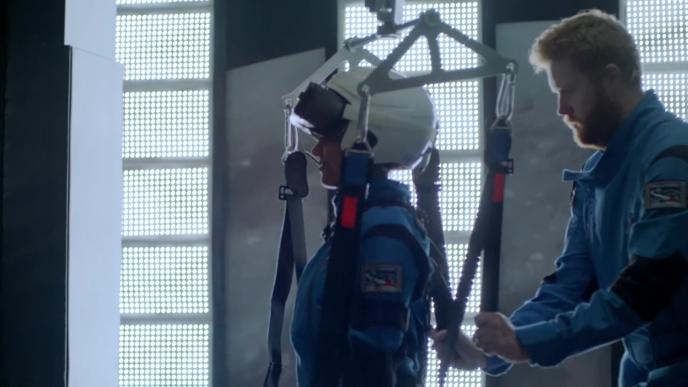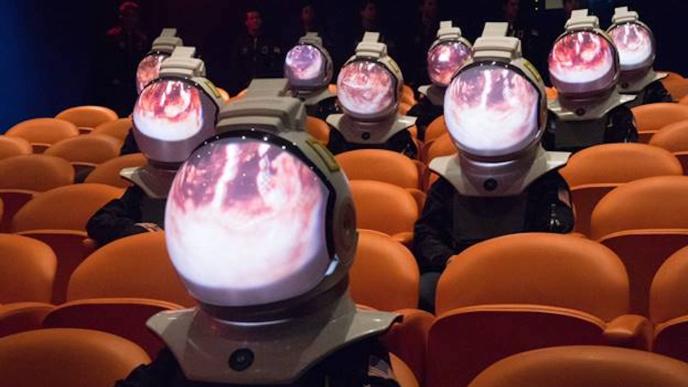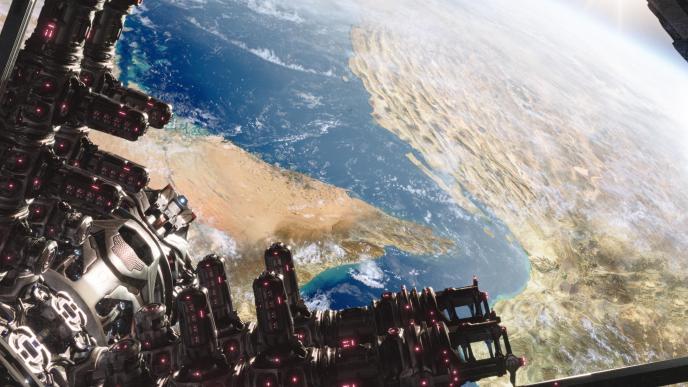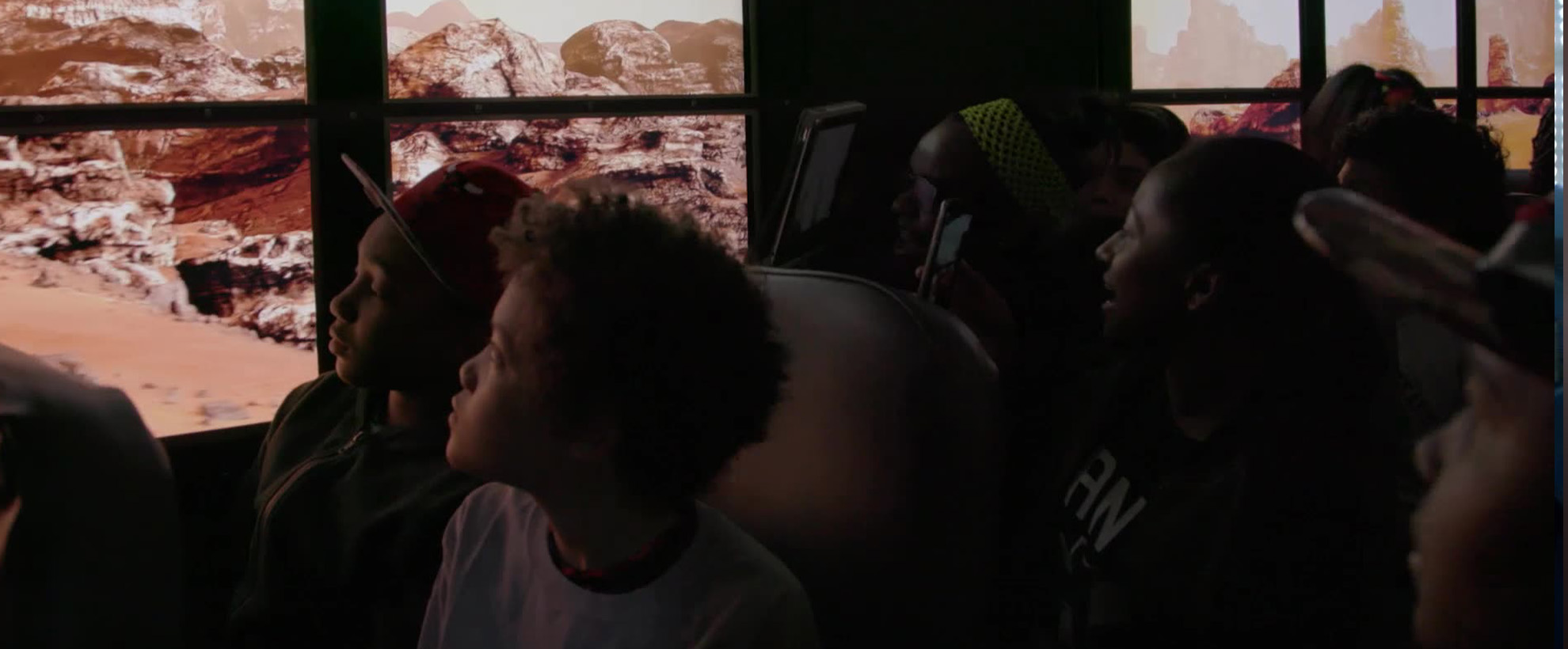
Field Trip to Mars
Never one to turn down a trip to outer space, Framestore was delighted to team with global security and aerospace specialists Lockheed Martin and creative agency McCann on groundbreaking project ‘Field Trip to Mars’, which launched at the 2016 U.S.A. Science and Engineering Festival in Washington, D.C.
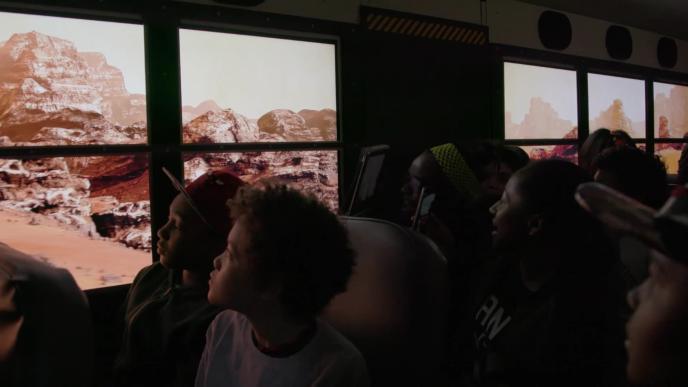
Group VR
‘Field Trip to Mars’ is the first-ever headset-free group virtual reality vehicle experience. Taking the literal shape of a classic yellow school bus, the vehicle is home to an immersive virtual experience that works to transport its passengers to the surface of the Red Planet.
As sponsor of the 2016 U.S.A. Science and Engineering Festival, Lockheed Martin launched a wider initiative, Generation Beyond, to inspire and engage the scientists and technologists of tomorrow. Through providing such a dazzling experience within the comfort of a school bus, the young attendees of the Festival couldn’t help but look to the future.
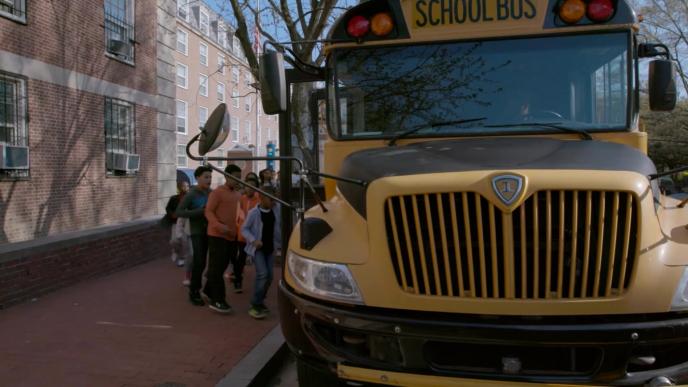
A Journey Into The Unknown
The project itself was full of unknowns: How to create a ‘group’ VR experience? Can VR immersion work without a headset? Thanks to major experience in space settings (Gravity, The Martian) and some multi-award-winning VR projects, Framestore was well-equipped to tackle the brief, with artists, creatives and technologists from across the business contributing their skills to the building of the one-of-a-kind bus.
Using the Unreal game engine as the platform for the experience, Framestore created a 200-square-mile ‘worldspace’ based on the real street configurations of D.C. The team programmatically covered the area with geological features and painted objects along the bus’s route, and created a system that would allow real bus speed, GPS and accelerometer to be translated into Unreal, creating a real school bus that would exist inside the realm of a video game. The bus itself became the headset: transparent 4K screens enabled passengers to look outside to D.C., before being transported to the rocky terrain of Mars.
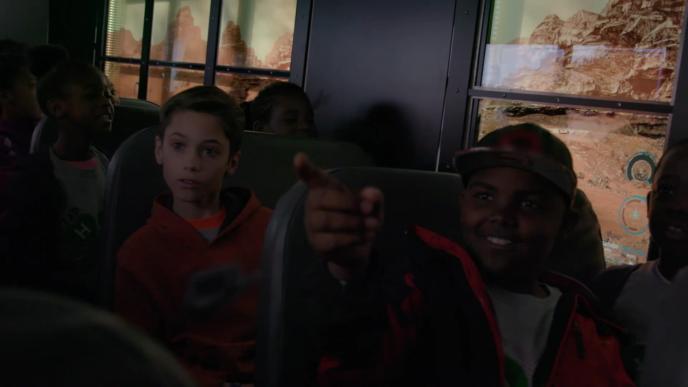
The Red Planet
Said terrain was the creation of Framestore’s modellers, who worked to replicate the rocks, dirt and mountains we recognise from satellite photography of the planet. In the spirit of future expeditions and explorations, technological additions including the new model of the rover Curiosity, a space colony, and a cameo from Lockheed’s Orion capsule for the upcoming Mars mission all appear on the space journey within the campaign.






